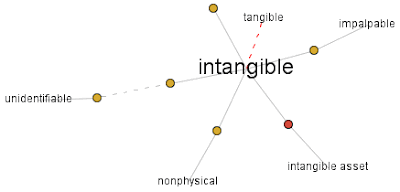Friday, 16 October 2009
Wednesday, 14 October 2009
Intangible Cultural Heritage

in⋅tan⋅gi⋅ble/ɪnˈtændʒəbəl/ [in-tan-juh-buhl]
1.not tangible; incapable of being perceived by the sense of touch, as incorporeal or immaterial things; impalpable.
2.not definite or clear to the mind: intangible arguments.
2.not definite or clear to the mind: intangible arguments.
Synonyms:2. vague, elusive, fleeting.
The definition of ‘intangible cultural heritage’ (ICH) has long suffered the problem of vagueness associated with its individual constituent terms; ‘intangible’, ‘culture’ and ‘heritage’ .While in simple terms, it can be defined as the culture that people practise as part of their daily lives; UNESCO, almost to the point of sounding pedantic, defines it as the “practices, representations, expressions, knowledge, skills – as well as the instruments, objects, artefacts and cultural spaces associated therewith – that communities, groups and, in some cases, individuals recognize as part of their cultural heritage. It is transmitted from generation to generation and is constantly recreated by communities and groups in response to their environment, their interaction with nature and their history, and provides them with a sense of identity and continuity, thus promoting respect for cultural diversity and human creativity".
Yes, I agree that it sounds like pure 'academic speak'! Urge you all to dwell on this for some time...and you'll figure that it isn't rocket science! Diwali is round the corner and i'm sure each one of you can recall aspects of your culture that are intangible. Do share them here!
Thursday, 17 September 2009
Genesis
“It is not for the love of all that all is dear; but for the love of the soul in all that all is dear”.
- Brihadaranyaka Upanishad
Last September, I had been to Hong Kong as part of a sourcing trip and while watching the light show alongside the harbour, I had one of those moments where I felt I was a rootless individual in a city clearly ‘Manhattanised’. Where was the ‘China’ in it? Five months later, I happened to witness the dragon dances as part of the Chinese New Year celebrations in Trafalgar Square, London. Ironical as it may seem, it is the very homogenisation of cultures that pushes people to experience cultural nuances elsewhere.
Globalisation is indeed a complex phenomenon that creates spaces of commonality but also spaces of difference but it isn’t new in Asian countries which have long been under colonial rules. However, what is of utmost concern is the rate of acceleration leading to standardization of values among the young, dismantlement of communities, rampant commercialization and extreme cases of nationalism.
As poignantly depicted in the movie Slumdog Millionaire (a by-product of commodification of Indian culture), most metropolises of Asia are faces of contrasts where high-rise buildings and slum dwellings; kucchha roads and flyovers; kirana shops and high street boutiques co-exist. In a time-space compressed urban landscape, the conservation of cultural heritage; both tangible and intangible, is therefore pivotal in restoring the identity of a place that may otherwise be lost.
- Brihadaranyaka Upanishad
Last September, I had been to Hong Kong as part of a sourcing trip and while watching the light show alongside the harbour, I had one of those moments where I felt I was a rootless individual in a city clearly ‘Manhattanised’. Where was the ‘China’ in it? Five months later, I happened to witness the dragon dances as part of the Chinese New Year celebrations in Trafalgar Square, London. Ironical as it may seem, it is the very homogenisation of cultures that pushes people to experience cultural nuances elsewhere.
Globalisation is indeed a complex phenomenon that creates spaces of commonality but also spaces of difference but it isn’t new in Asian countries which have long been under colonial rules. However, what is of utmost concern is the rate of acceleration leading to standardization of values among the young, dismantlement of communities, rampant commercialization and extreme cases of nationalism.
As poignantly depicted in the movie Slumdog Millionaire (a by-product of commodification of Indian culture), most metropolises of Asia are faces of contrasts where high-rise buildings and slum dwellings; kucchha roads and flyovers; kirana shops and high street boutiques co-exist. In a time-space compressed urban landscape, the conservation of cultural heritage; both tangible and intangible, is therefore pivotal in restoring the identity of a place that may otherwise be lost.
Stop. Breathe. Think what we've got!

Welcome to Kultur Lab!
Kultur Lab is an idea - a social enterprise being formed in London to provide children with an authentic experience of Asian culture through constantly evolving programming backed by extensive research and development.
The mission of Kultur Lab is to create a unique environment in which children of all ages and abilities can explore, experiment and engage with culture and in the process, entertain themselves and others.
Although we plan to incorporate most art forms into our workshops and programs, our focus will be on the living heritage also known as intangible cultural heritage by the UNESCO.
This venture is still in a concept stage and i'm using this blog to garner support for this project and also elicit feedback/views/critique from people who care about making the world a better place.
Kultur Lab is an idea - a social enterprise being formed in London to provide children with an authentic experience of Asian culture through constantly evolving programming backed by extensive research and development.
The mission of Kultur Lab is to create a unique environment in which children of all ages and abilities can explore, experiment and engage with culture and in the process, entertain themselves and others.
Although we plan to incorporate most art forms into our workshops and programs, our focus will be on the living heritage also known as intangible cultural heritage by the UNESCO.
This venture is still in a concept stage and i'm using this blog to garner support for this project and also elicit feedback/views/critique from people who care about making the world a better place.
Subscribe to:
Comments (Atom)
